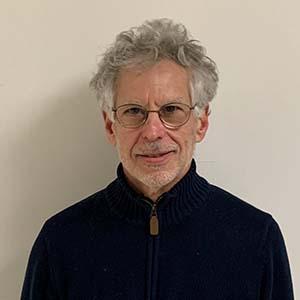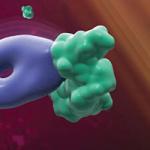
Mark A. Levine, M.D.
Senior Investigator
Molecular and Clinical Nutrition Section, Digestive Disease Branch
NIDDK
Research Topics
Research conducted in my laboratory aims to determine optimal nutrition in health, disease, and treatment. Our research focuses on vitamin C (ascorbic acid) as a model nutrient. We determine how specific vitamin C functions relate to nutrient concentration in vitro and in vivo. We seek a functional basis for nutrient recommendations, rather than relying on preventing deficiency—the previous method used for many years. Facilitated glucose transporters mediate transport of the oxidation product of ascorbic acid, dehydroascorbic acid. Therefore, our work includes investigation of these transporters by themselves, in relation to dehydroascorbic acid, and in relation to diabetes.
Our laboratory conducts basic, translational, and clinical research in the following areas:
- ascorbic acid function in relation to concentration in cells and subcellular organelles
- mechanisms of ascorbic acid transport and accumulation
- ascorbic acid pharmacokinetics (dose-concentration relationships) in animals and people
- pharmacologic ascorbic acid as a prodrug for hydrogen peroxide formation in vivo and for treatment of cancer and infectious diseases
- ascorbic acid and free radical biology
- regulation of glucose transport in vitro and in vivo
- function of ascorbic acid and other antioxidant vitamins in red blood cells in health and disease, with special attention to diabetes
Many countries base, in large part, recommended dietary allowances (RDAs) for vitamin C on our work. On going multiple clinical trials in cancer and sepsis using pharmacologic ascorbic acid are based on our work.
Need for Further Study
Our research may benefit the public by providing new ways to: (1) prevent disease and optimize health through nutrition; (2) treat cancer with minimal side effects; (3) slow glucose absorption as an added treatment for obesity and diabetes; (4) prevent or delay complications of diabetes; and (5) improve the collection or storage of red blood cells for transfusion.
Biography
- American Society for Clinical Investigation, 1993
- NIH Fellowship in Endocrinology and Metabolism, Interinstitute Endocrinology Training Program, 1980-1983
- Internship and Residency, Osler Medical Service, Johns Hopkins Hospital, 1977-1980
- M.D., Harvard Medical School, 1977
- B.A., Brandeis University, 1973
Selected Publications
- Violet PC, Ebenuwa IC, Wang Y, Niyyati M, Padayatty SJ, Head B, Wilkins K, Chung S, Thakur V, Ulatowski L, Atkinson J, Ghelfi M, Smith S, Tu H, Bobe G, Liu CY, Herion DW, Shamburek RD, Manor D, Traber MG, Levine M. Vitamin E sequestration by liver fat in humans. JCI Insight. 2020;5(1).
- Shenoy N, Creagan E, Witzig T, Levine M. Ascorbic Acid in Cancer Treatment: Let the Phoenix Fly. Cancer Cell. 2018;34(5):700-706.
- Sevransky JE, Rothman RE, Hager DN, Bernard GR, Brown SM, Buchman TG, Busse LW, Coopersmith CM, DeWilde C, Ely EW, Eyzaguirre LM, Fowler AA, Gaieski DF, Gong MN, Hall A, Hinson JS, Hooper MH, Kelen GD, Khan A, Levine MA, Lewis RJ, Lindsell CJ, Marlin JS, McGlothlin A, Moore BL, Nugent KL, Nwosu S, Polito CC, Rice TW, Ricketts EP, Rudolph CC, Sanfilippo F, Viele K, Martin GS, Wright DW, VICTAS Investigators. Effect of Vitamin C, Thiamine, and Hydrocortisone on Ventilator- and Vasopressor-Free Days in Patients With Sepsis: The VICTAS Randomized Clinical Trial. JAMA. 2021;325(8):742-750.
- Tu H, Li H, Wang Y, Niyyati M, Wang Y, Leshin J, Levine M. Low Red Blood Cell Vitamin C Concentrations Induce Red Blood Cell Fragility: A Link to Diabetes Via Glucose, Glucose Transporters, and Dehydroascorbic Acid. EBioMedicine. 2015;2(11):1735-50.
- Ebenuwa I, Violet PC, Michel K, Padayatty SJ, Wang Y, Tu H, Wilkins KJ, Kassaye S, Levine M. Vitamin C urinary loss and deficiency in HIV: Cross-sectional study of vitamin C renal leak in women with HIV. Clin Infect Dis. 2023.
Related Scientific Focus Areas



Molecular Biology and Biochemistry
View additional Principal Investigators in Molecular Biology and Biochemistry

This page was last updated on Wednesday, January 10, 2024